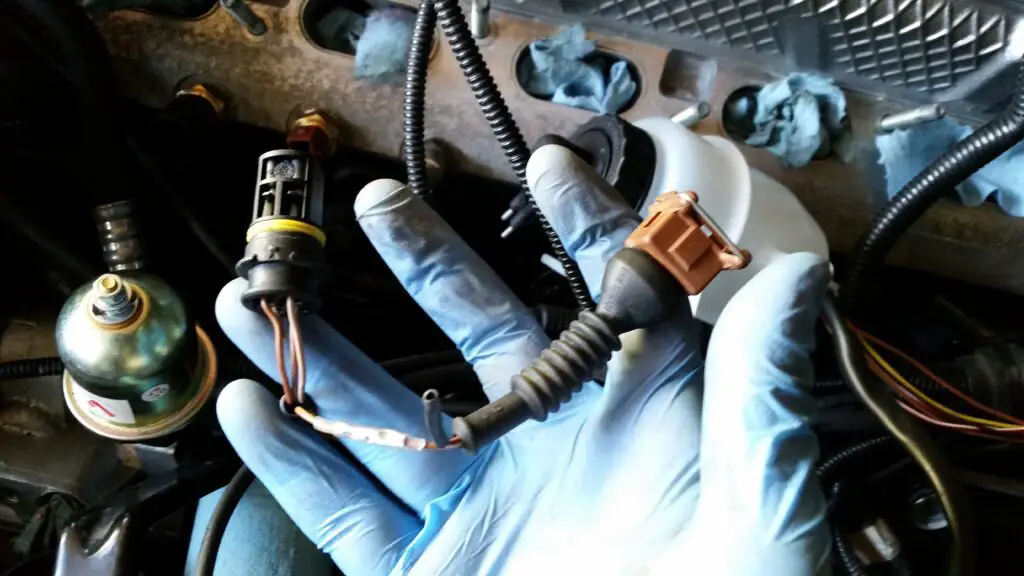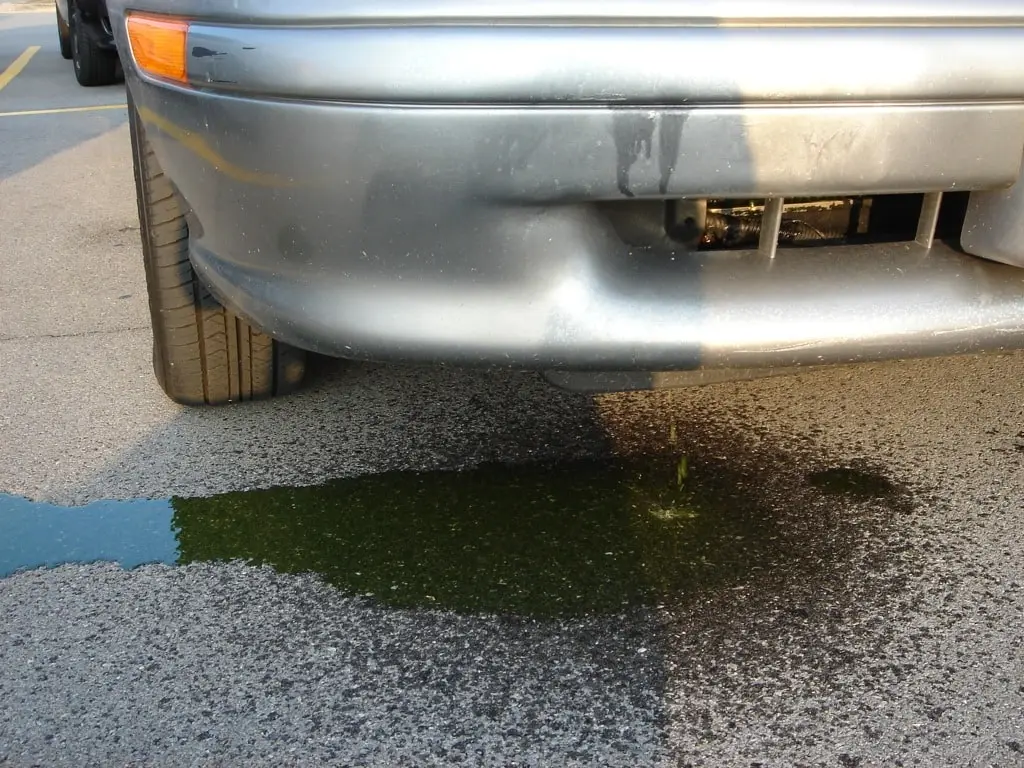A car’s coolant temperature sensor, also known as the engine coolant temperature (ECT) sensor, is a vital component of the vehicle’s engine management system. This small sensor monitors the temperature of the engine coolant and relays this information to the electronic control unit (ECU). The ECU uses this data to adjust the fuel mixture, ignition timing, and other parameters to optimize engine performance.
So what happens when this important sensor goes bad? Can a bad coolant temp sensor cause misfires and other driveability issues? Let’s take a closer look.
What Problems Can a Bad Coolant Temperature Sensor Cause?
A failing or failed coolant temperature sensor can cause a variety of problems, including:
- Engine misfires
- Rough idle
- Poor fuel economy
- Overheating
- Power loss
- Check engine light
So in summary, a bad coolant temp sensor can potentially cause drivability problems like misfires, poor idle, and reduced power, while also impacting fuel economy and engine temperature management.
Can a Coolant Temperature Sensor Cause Rough Idle?
Absolutely. One of the most common symptoms of a failing coolant temperature sensor is a rough, unstable idle. Here’s why:
The ECU uses data from the coolant temperature sensor to determine how much fuel to inject into each cylinder. When the sensor gives inaccurate readings, the fuel mixture will be off, causing rough idling as cylinders get too much or too little fuel.
So in summary, a malfunctioning coolant temp sensor can affect idle smoothness and cause a rough idle. The ECU depends on accurate data from this sensor to deliver the optimal air/fuel mix.
Does the Coolant Temp Sensor Control Fuel?
The coolant temperature sensor doesn’t directly control fuel delivery; that job belongs to the ECU. However, the ECU does rely heavily on data from the coolant temperature sensor to determine how much fuel to inject.
As the name implies, the coolant temperature sensor measures the temperature of the liquid coolant in the engine block and cylinder head. As the engine heats up from a cold start, the coolant heats up too.
The sensor relays this coolant temp info to the ECU. The ECU uses a pre-programmed fuel map to look up the proper air/fuel ratio for that temperature.

Can a Bad Coolant Temp Sensor Cause Misfire? So while the coolant temp sensor itself doesn’t control the fuel delivery, the information it provides allows the ECU to control the fuel mixture properly. This is why a faulty sensor can cause fuel-related drivability issues.
Can a Bad Coolant Temp Sensor Cause Backfire?
Backfires can be caused by a coolant temperature sensor that is stuck giving erroneous cold or hot readings to the ECU. It leads to too much or too little fuel, which ignites violently outside the cylinders.
Are There 2 Coolant Temperature Sensors?
Many modern vehicles have two separate coolant temperature sensors:
- Engine coolant temperature Failing (ECT) Sensor
- Coolant temperature sender
So while they both read coolant temp and may look similar, the ECT sensor is used for controlling the engine and the temperature sender is just for displaying the reading on the dash.
Some simpler vehicle designs still use only a single temp sensor. In those cases, the ECT sensor also doubles as the temperature sender for the gauge cluster.
Does the Coolant Temp Sensor Affect the Transmission?
The coolant temperature sensor only monitors engine coolant temp. It has no direct input into transmission operation or control on its own.
Can a Bad Coolant Temp Sensor Cause Misfire? However, faulty data from it can trick the engine computer into taking actions that influence transmission operation and drivability indirectly.

Main Takeaways: Can a Bad Coolant Temp Sensor Cause Misfire?
- The coolant temp sensor is used by the ECU to optimize the fuel mixture and ignition timing as the engine warms up.
- A failing sensor can provide inaccurate data that leads to a too-rich or too-lean air/fuel mixture.
- This improper fuel mixture is a major cause of misfires from a bad coolant temp sensor.
- Misfires, rough idle, stalling, and hard starting are all common symptoms of a coolant temp sensor failure.
- While the sensor doesn’t directly control fuel delivery, the ECU relies heavily on the coolant temp data to adjust injector pulse width and manage the air/fuel ratio.
- Faulty values from a bad sensor will confuse the ECU, resulting in engine misfires and driveability problems.
So in summary, while a coolant temp sensor failure doesn’t physically damage cylinders or directly cause misfires itself, it is a very common root cause of misfires due to the improper air/fuel ratio it creates.
Diagnosing a Bad Coolant Temperature Sensor
Can a Bad Coolant Temp Sensor Cause Misfire? If you suspect your coolant temp sensor has failed, here are some tips on diagnosing it:
- Check for trouble codes
- Check live data
- Look for damage
- Perform resistance test
- Conduct sensor swap
- Overheat testing
Combining data trouble codes, live readings, and resistance checks gives you a solid diagnostic approach.
Fixing a Bad Coolant Temperature Sensor
Repairing a bad coolant temp sensor usually involves simply replacing the faulty sensor:
- Locate sensor
- Disconnect electrical connector
- Drain some coolant
- Remove sensor
- Install new sensor
- Reconnect connector
- Refill coolant
- Clear codes
With the new coolant sensor installed and codes cleared, the engine should be back to running smoothly.
FAQs – Can a Bad Coolant Temp Sensor Cause Misfire
What problems can a bad coolant temperature sensor cause?
A failing or failed coolant temperature sensor can cause issues like engine misfires, rough idle, poor fuel economy, overheating, power loss, and the check engine light illuminating.
Can a coolant temperature sensor cause rough idle?
Yes, a malfunctioning coolant temperature sensor is a common cause of rough, unstable idling. The inaccurate data it sends to the ECU results in an improper fuel mixture between cylinders, leading to uneven engine running.
Does the coolant temp sensor control fuel?
No, the coolant temp sensor doesn’t directly control fuel delivery. However, it provides vital temperature data that allows the ECU to properly adjust the air/fuel mixture for optimum performance as the engine warms up.
Can a bad coolant temp sensor cause backfire?
Yes, a stuck open or shorted coolant temperature sensor can cause backfiring. When the sensor falsely tells the ECU the engine is very hot or cold, it will create a too-lean or too-rich fuel mixture that can ignite violently in the intake and exhaust systems.
Are there 2 coolant temperature sensors?
Many vehicles have two – an engine coolant temp sensor (ECT) for engine management, and a separate coolant temp sender for the dashboard temperature gauge. Some older cars combine both functions into one single ECT sensor.
Does the coolant temp sensor affect transmission?
Not directly. However, the data it sends to the engine ECU can result in actions that secondarily affect transmission operation, like altering shift points or locking the torque converter. So it can influence the transmission indirectly in some cases when faulty.
Conclusion – Can a Bad Coolant Temp Sensor Cause Misfire
In summary – while a bad coolant temp sensor doesn’t directly damage cylinders or control fuel injectors, it is a very common root cause of engine misfires due to the way its failure indirectly causes the computer to deliver improper air/fuel ratios.
Replacing the suspect sensor and clearing any related ECU trouble codes is typically a failing sensor that’s needed to get an engine back to running smoothly if a faulty coolant temperature sensor is causing misfires and related issues.

